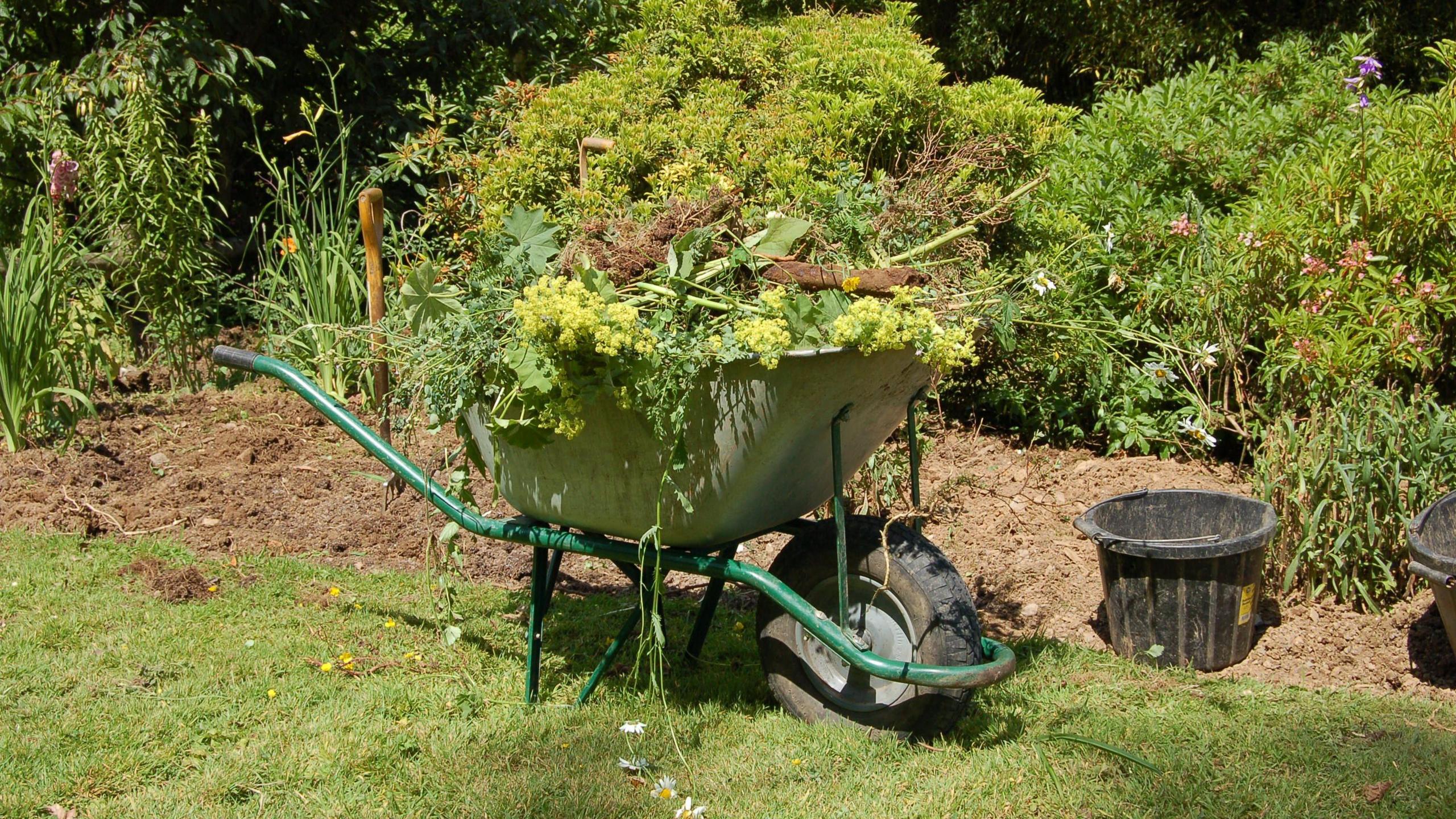How does recycling work in the Channel Islands?
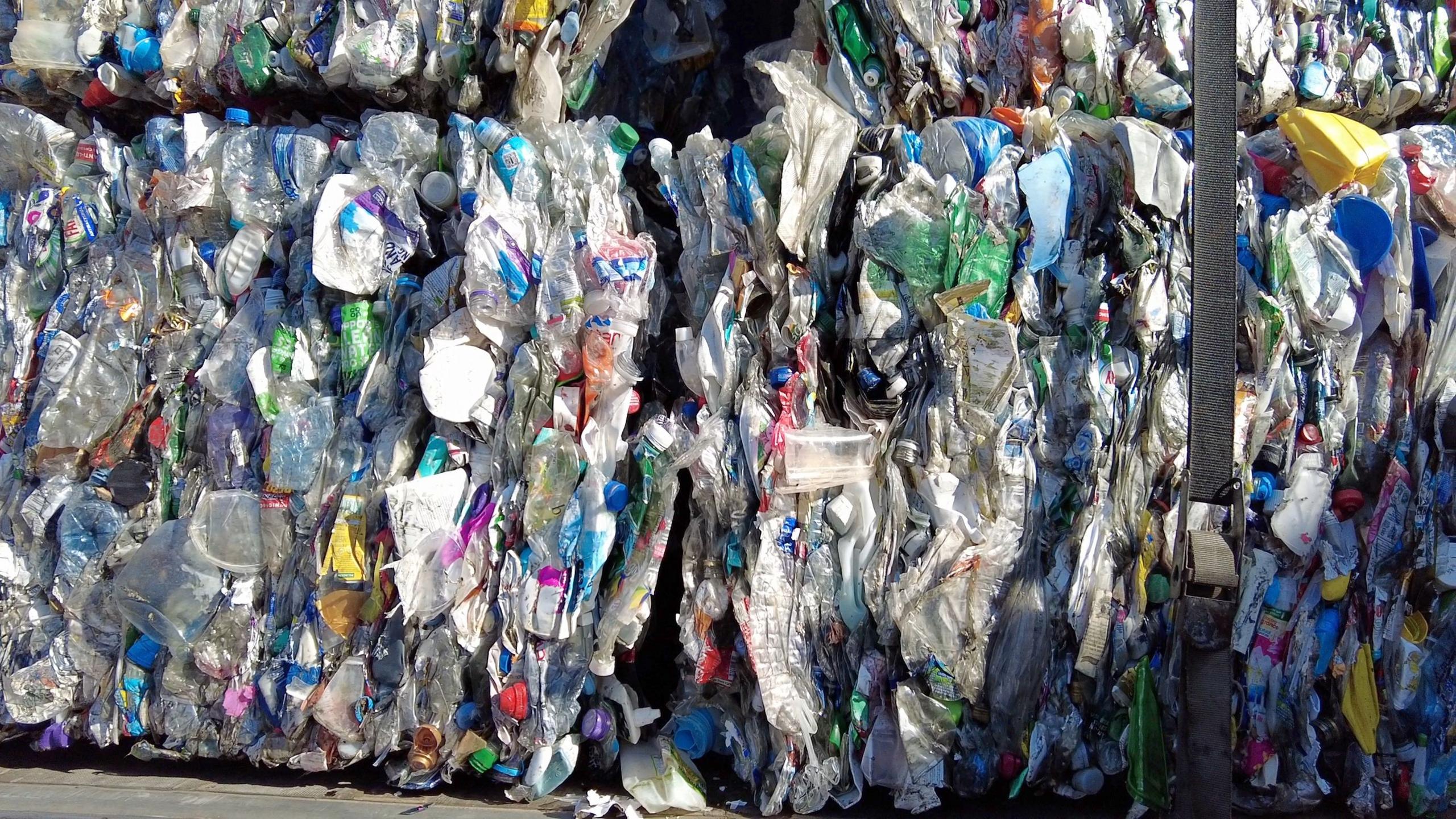
Jersey's head of recycling Piers Tharme said there was a "common myth" that the island's recycling gets incinerated
- Published
An environmental campaigner is calling for financial disincentives to stop people in Jersey putting rubbish in black bin bags as the island's infrastructure minister admits the current recycling system is not the most environmentally-friendly.
Nigel Jones, from Jersey in Transition (JiT), said the government could do "a lot better" with recycling and should share more information about how it works.
Constable Andy Jehan acknowledged there was far more the island could do after previously revealing Jersey had a municipal recycling rate of 35% in 2023 compared with 59% in Guernsey, external.
To understand these different recycling rates, the BBC has looked at how recycling works in each island.
What can you recycle?
In Guernsey, a range of household materials can be recycled, including:
Paper and cardboard
Tins, cans and aerosols
Plastic bottles and containers
Tin foil
Milk and juice cartons
Glass bottles and jars
Any items contaminated with food, such as chip papers and pizza boxes, cannot be included in household recycling.
Large household appliances can also be recycled at the Household Waste and Recycling Centre (HWRC).
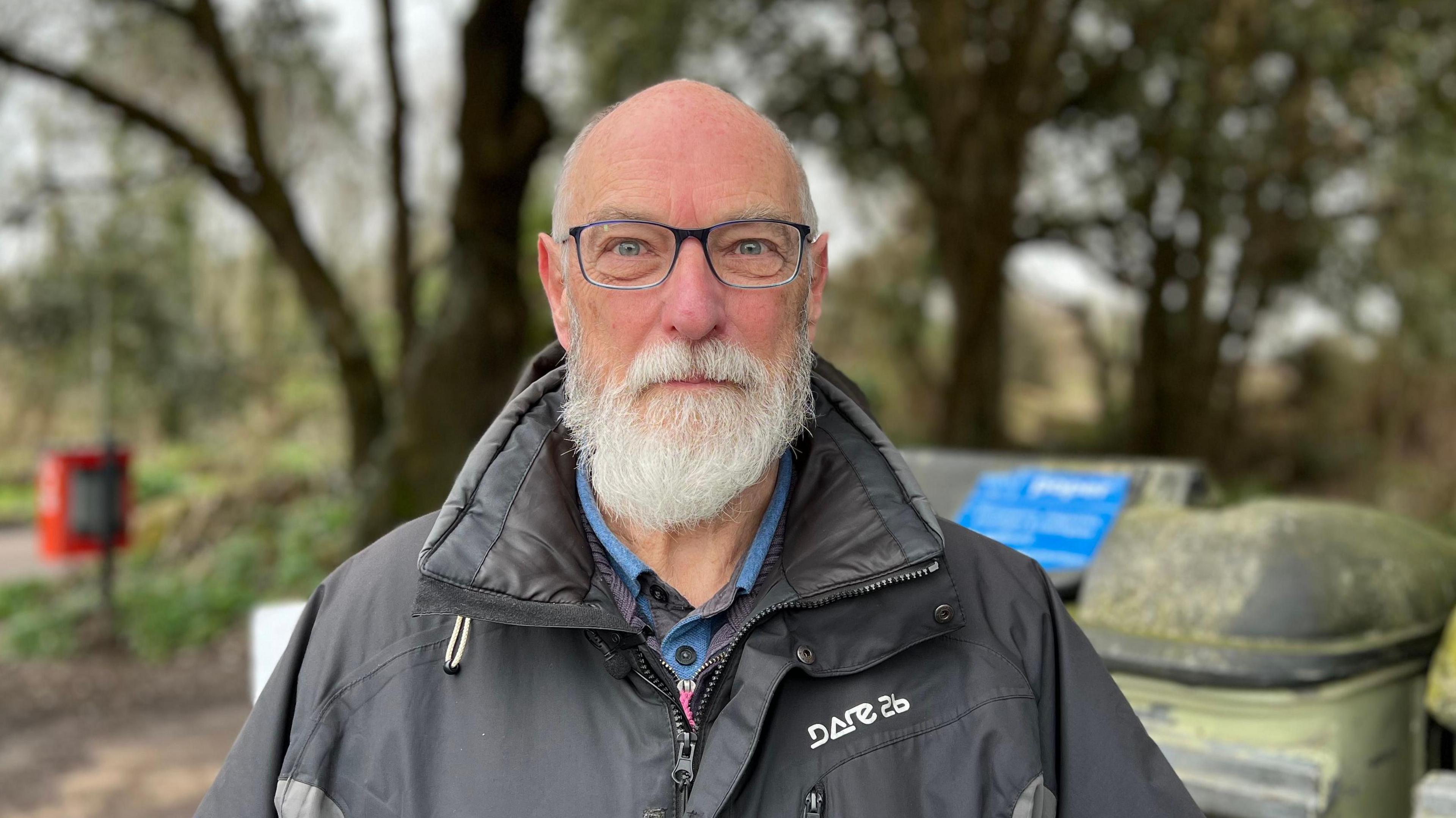
Environmental campaigner Nigel Jones said Jersey's government could do a lot better with recycling
In Jersey, similar materials can be recycled but there are some notable exceptions.
You cannot recycle:
Food and drink cartons
Milk cartons
Plastic pots, trays and tubs
Mr Jones said it was a "great shame" that food and drink cartons can't be recycled, adding there should be a charge for suppliers who import non-recyclable packaging into the island.
Jersey also does not recycle food waste.
Jehan said Guernsey's food waste system was "terrific" and he was looking at implementing something similar, although it could take months.
How is it collected?
In Guernsey, all households have access to a kerbside recycling scheme where different materials are collected in coloured bags.
People can put recycling out for collection on a two-week rotation - one week it is tins and plastics, the next week is paper and card.
Food waste is also collected once a week with general waste and glass collected every two weeks, for most households.
The island also has a 'pay-to-throw' scheme for general waste, set at £1.88 for a bag of up to 50 litres and £3.38 for a bag up to 90 litres.
Operations manager at Guernsey Waste Sarah Robinson said: "We really encourage people to recycle as much as possible by making it as easy as possible for them."
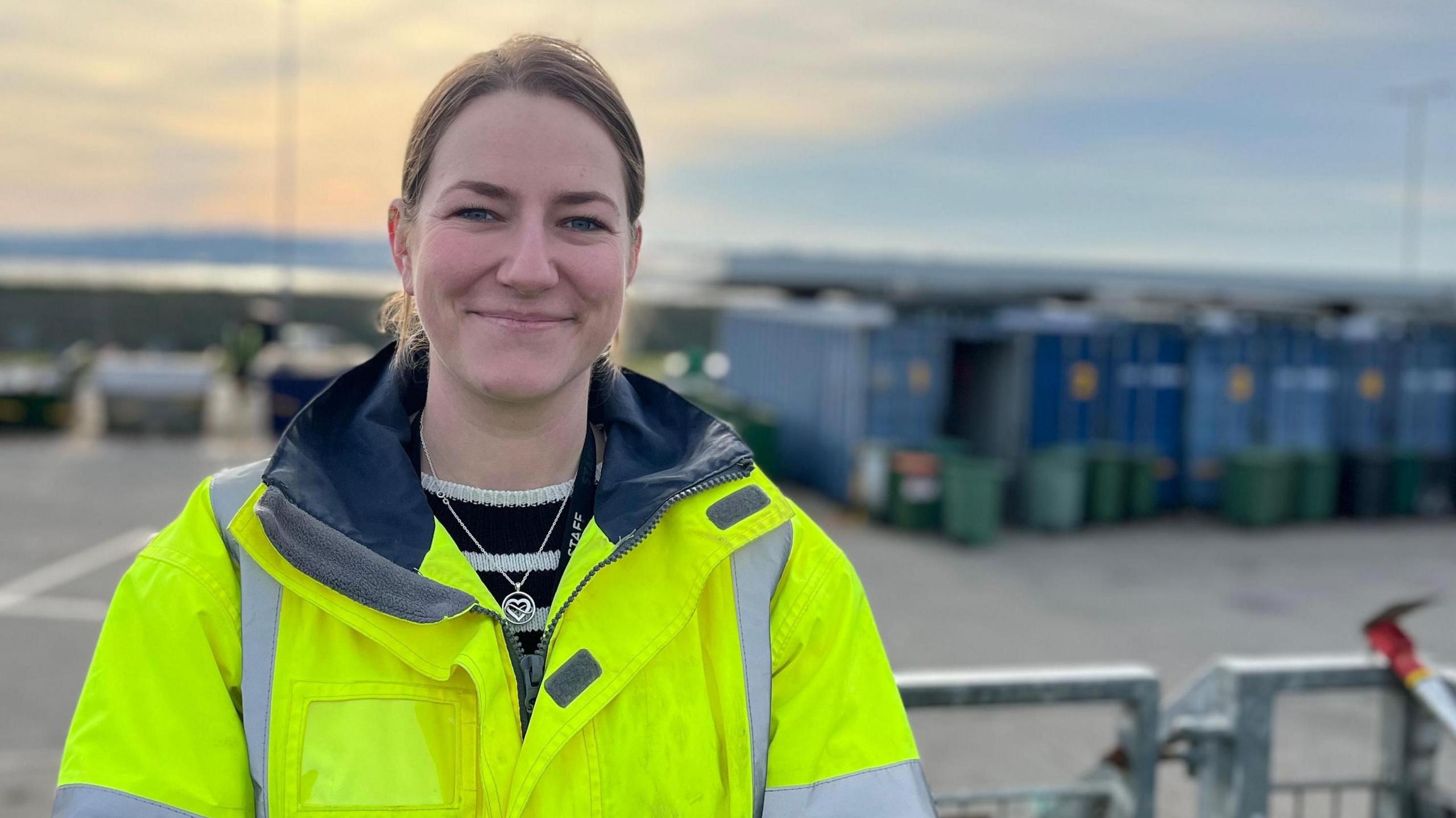
Sarah Robinson from Guernsey Waste said officers encourage people to recycle as much as possible by making things as easy as possible
In Jersey, kerbside collection for recycling is organised by each individual parish.
Ten out of 12 parishes have kerbside collection for paper, cardboard, plastic bottles and metal packaging, with St Martin recently introducing the scheme.
Every house has a weekly general waste collection and most have a regular glass collection organised by the parish, although some people in St Helier have to drop off glass at bins.
Jehan said he was working with the island's constables to introduce a "uniform" parish collection system, adding it was not cost-effective or environmentally-friendly to have 12 parishes doing separate things.
Where does recycling go?
One Jersey parish that does not have a kerbside recycling scheme is St Clement.
Constable Marcus Troy said this was largely because he could not find a refuse collector to do it.
Troy said he was sceptical about whether the island's waste was being properly recycled, adding that he had heard anecdotes about paper and cardboard being burned.
He said his parishioners were not supportive of recycling at the moment but he was open to change, particularly if the government organised an island-wide collection scheme.
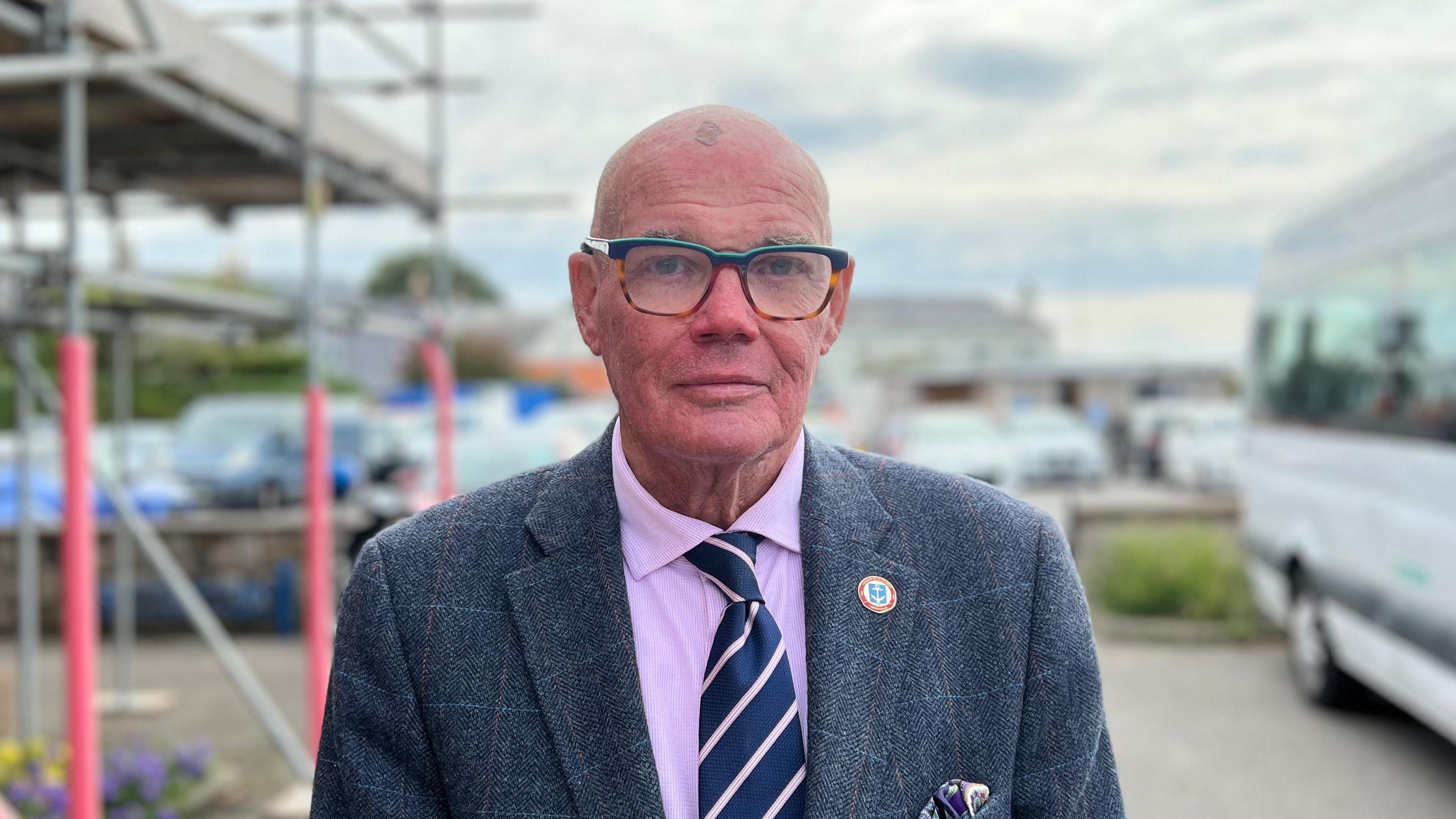
St Clement parish constable Marcus Troy said his parishioners were not in favour of recycling
Jersey's head of recycling Piers Tharme said he was aware of the "common myth" that everything in the island gets incinerated.
He said a key part of his job was trying to explain to people what actually happens, adding that only contaminated loads of paper or cardboard would be burned.
He said some misconception was because a lot of parish recycling gets collected in a similar truck to the normal waste.
A 2024 freedom of information request, external revealed what happens to the majority of recycled material in Jersey.
Metal is taken to the government waste metals facility to be transported to Portsmouth where it is separated into different grades before being sold for further processing.
Paper, cardboard and plastic bottles are taken to the government's on-island recycling provider which bales and ships the material to different UK processing facilities.
Some of the collected glass is transported to the UK, while a percentage is turned into a glass sand mix that can be used on-island for construction projects.
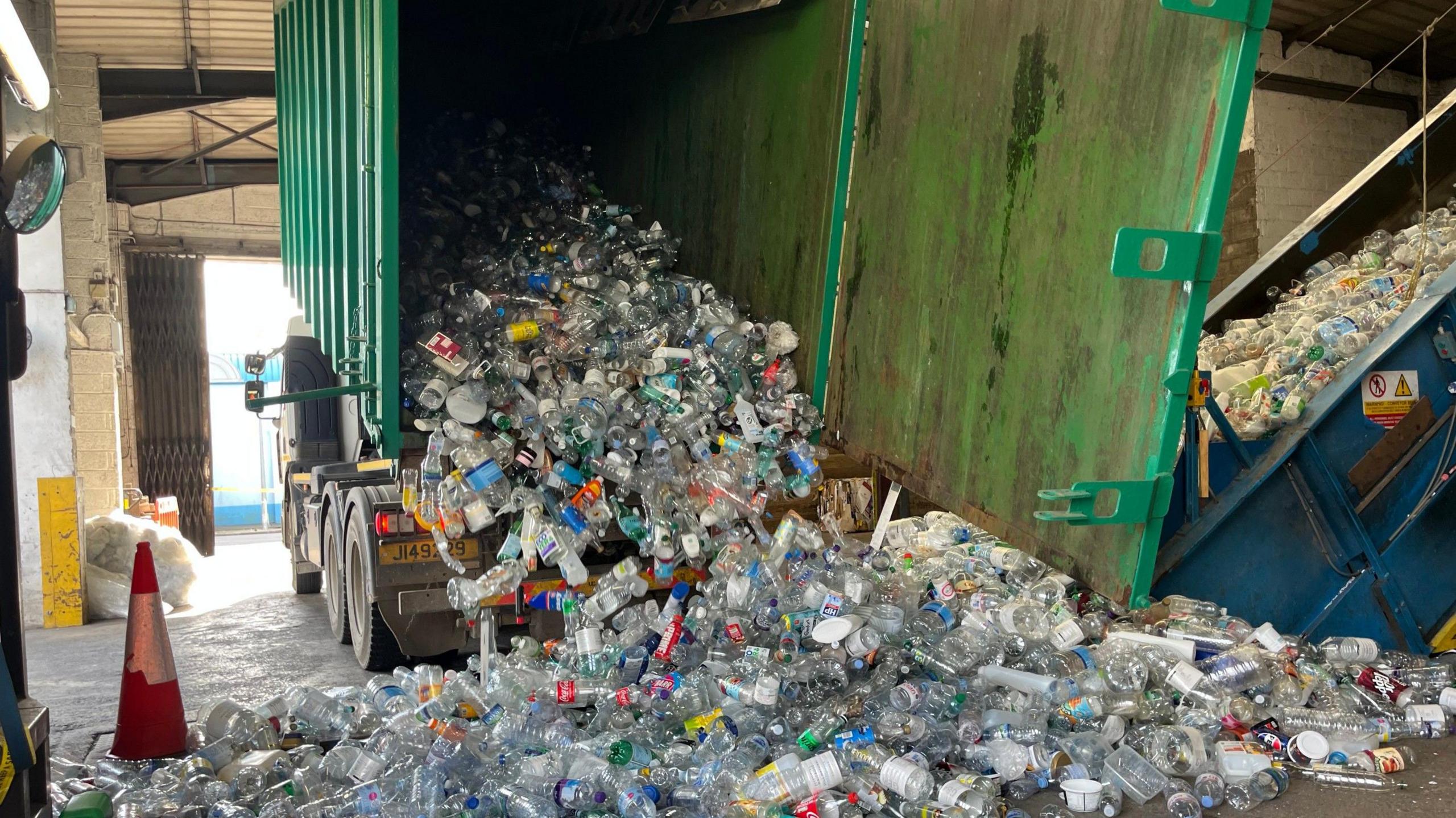
The majority of Jersey's recycling gets packaged on-island before being shipped to the UK
Ms Robinson said Guernsey Waste has about 40 contracts or supply agreements for managing waste.
She said general waste was sent to Longue Houge before being shipped to the UK, then onwards to an energy recovery facility in Sweden.
She said food waste was processed into a liquid which is pumped into tanks and shipped to the UK for anaerobic digestion.
She said plastic, tins, cans, cartons, paper and cardboard were all sorted, by hand and machine, at an on-island facility before being shipped to the UK.
Glass also gets bulk loaded onto containers for shipping to the UK, she added.
Is recycling the best thing to do?
Mr Jones said with the world in an "ecological crisis", recycling was a good thing but not the best thing.
He said: "The best thing is buying less in the first place, making it last by repairing it, re-using it and then gifting it on when you're done with it."
He said he remembers the "true recycling days" when people used glass milk bottles that were collected by the milkman before being used again.
Ms Robinson said Guernsey was joining a national 'Love food, hate waste' campaign and would be trying to reduce waste in general in future.
Mr Tharme added that recycling often gets used as an answer to the big environmental questions.
"The reality is that what we need to do is consume less and produce less waste," he said.
Follow BBC Guernsey on X, external and Facebook, external. Follow BBC Jersey on X, external and Facebook, external. Send your story ideas to channel.islands@bbc.co.uk, external.
Related topics
- Published31 July
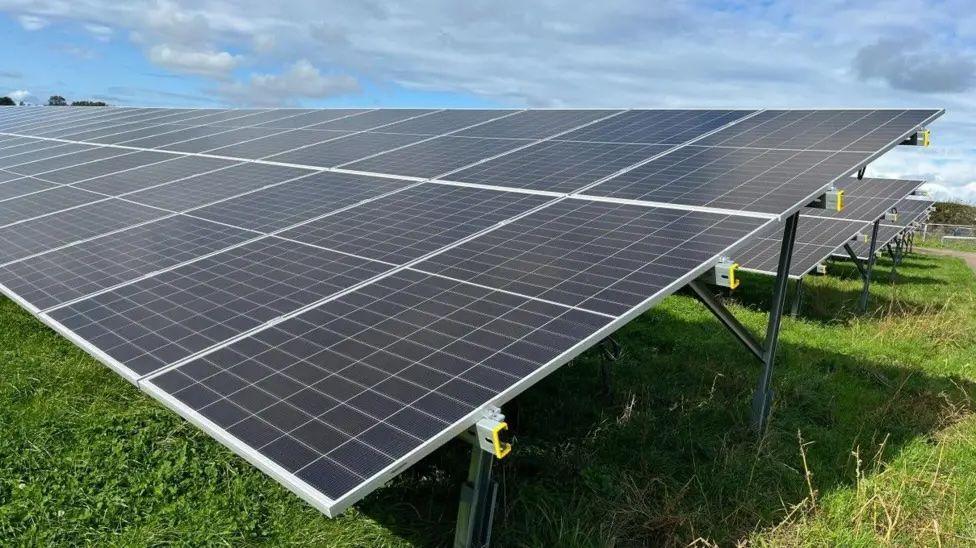
- Published7 February
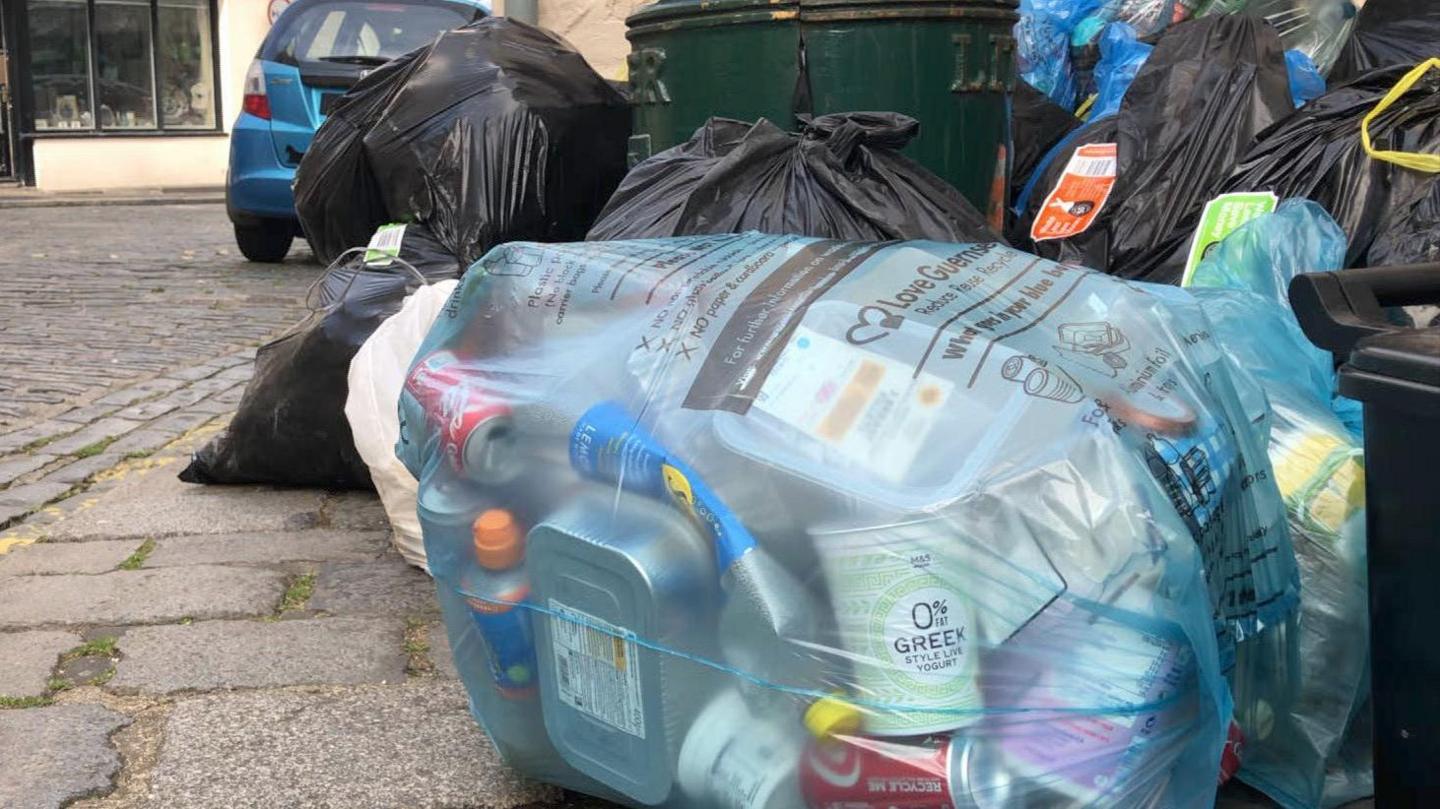
- Published23 January
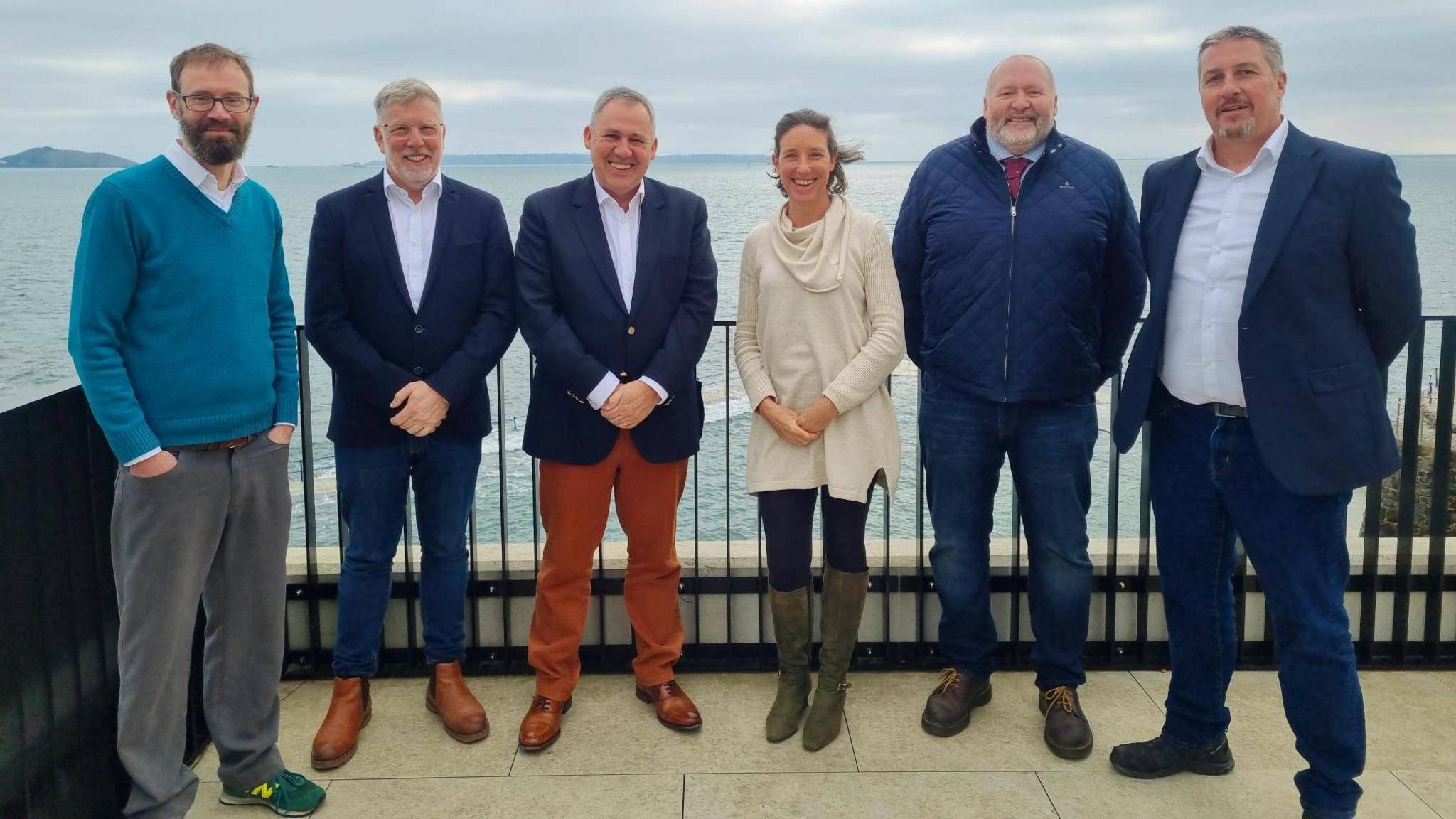
- Published5 November 2024
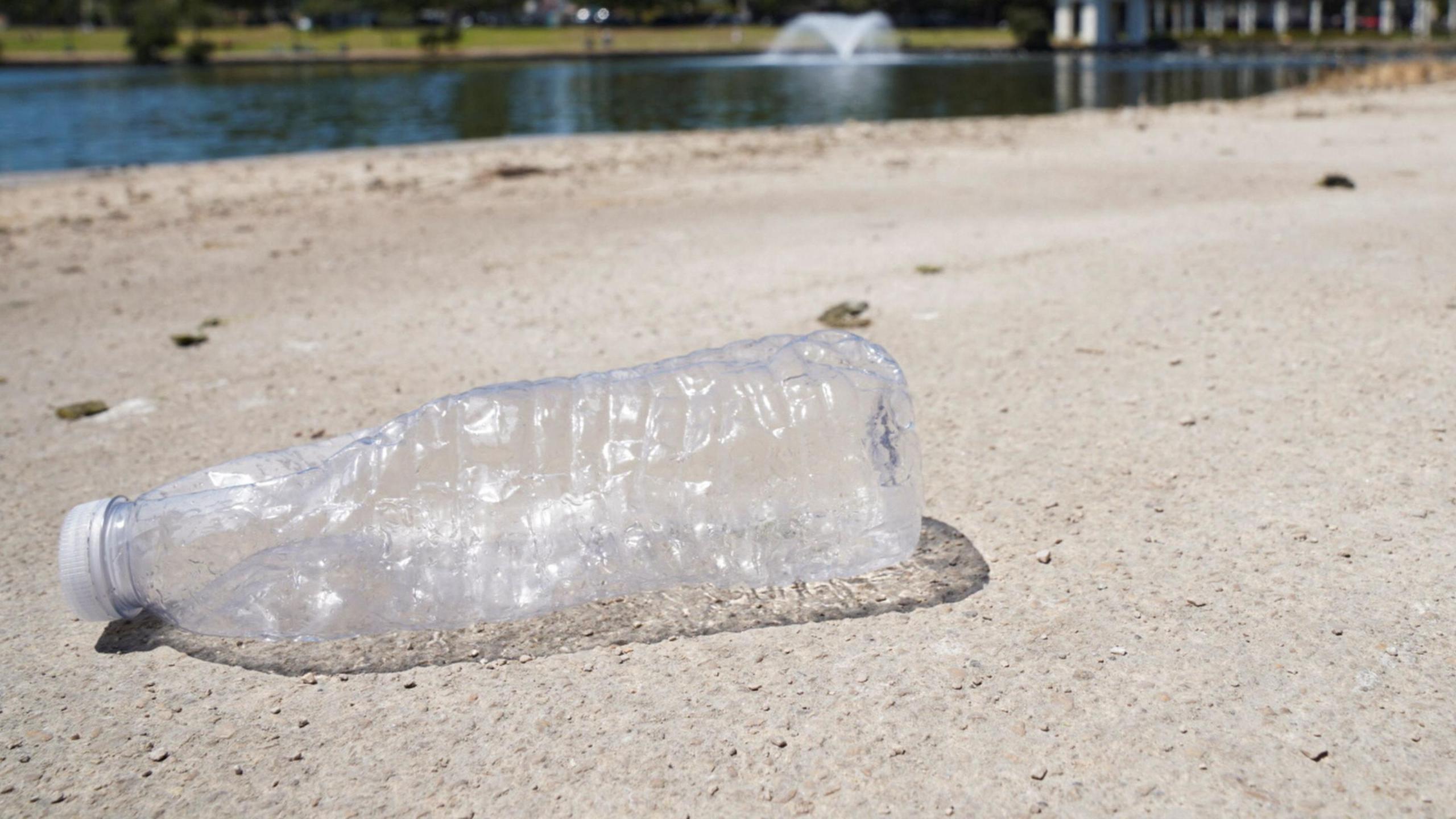
- Published26 June 2024
